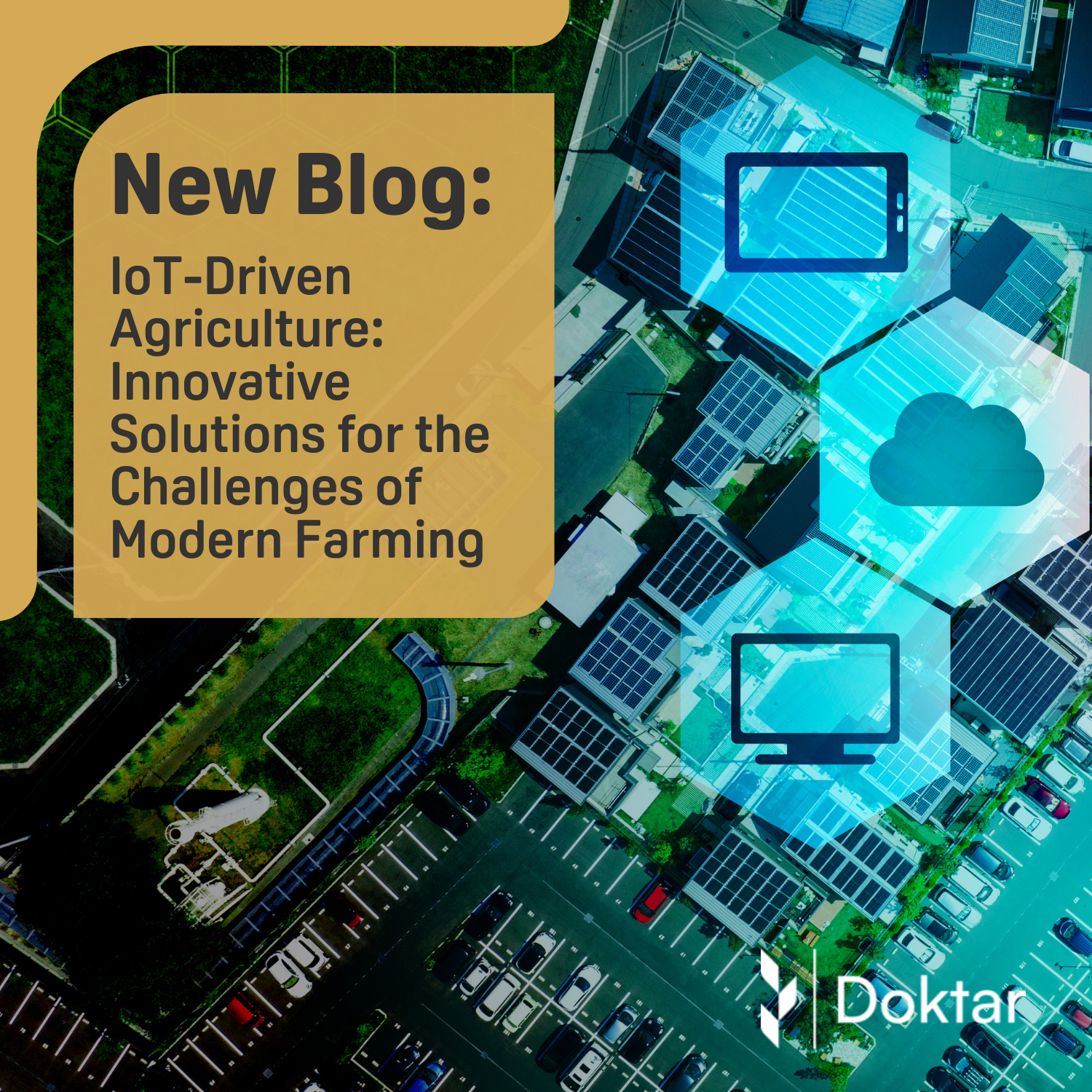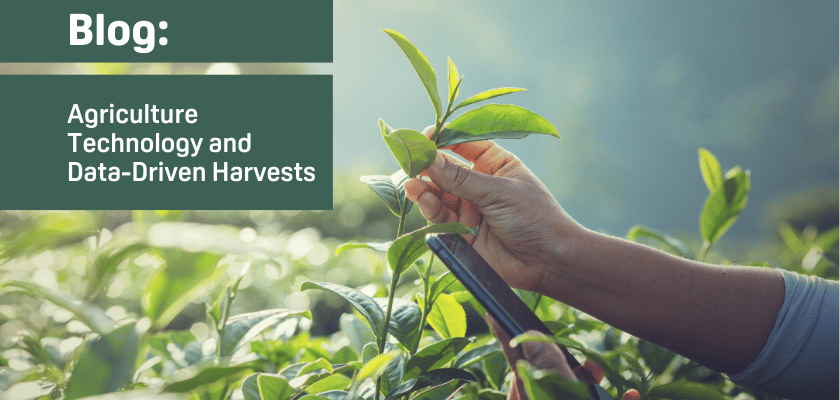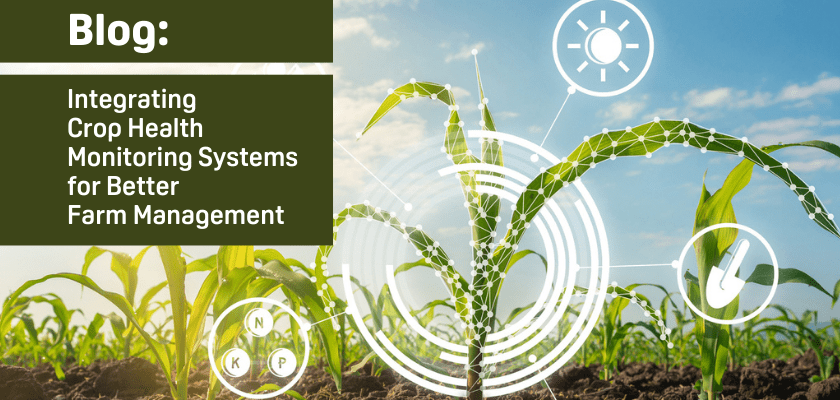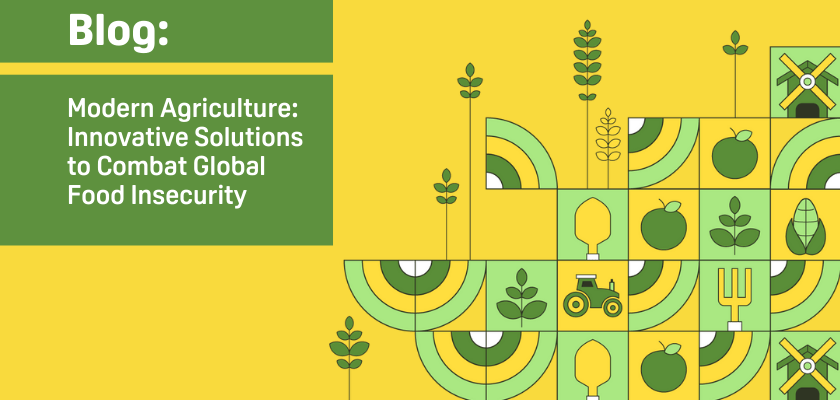

IoT-Driven Agriculture: Innovative Solutions for the Challenges of Modern Farming
IoT in agriculture leverages smart devices to monitor and analyze data, enabling precision farming, pest management, and smart irrigation. Solutions like Doktar's Filiz, PestTrap, and CropMap enhance crop yields, reduce input costs, and promote sustainability. IoT empowers farmers with data-driven insights for efficient, resilient, and regenerative agricultural practices.
Published on 30 September 2024
In an era of rapid technological advancement, agriculture has transformed remarkably through agricultural technologies like the Internet of Things (IoT). IoT in agriculture has revolutionized how crops are grown, monitored, and managed by offering innovative solutions to the most pressing challenges in modern agriculture. This shift enables farmers to enhance crop production and make informed decisions, boosting agricultural sustainability while embracing cost-efficiency and regenerative agriculture practices.
What is IoT in Agriculture?
IoT in agriculture refers to using smart farming technology and sensors connected to the internet to monitor, collect, and analyze agricultural data. These devices provide real-time insights into precision farming aspects such as soil conditions, crop health, water-efficient irrigation, and weather patterns. The goal is to empower farmers with data-driven insights to optimize their farming practices, increasing yield prediction while reducing costs.
Doktar, a leader in agriculture technology, leverages IoT devices like its Filiz agricultural sensor station, SoilScanner, and PestTrap to provide real-time data on soil and environmental conditions. These agritech solutions align with the growing demand for sustainable agriculture and regenerative soil practices.
How is IoT Used in Agriculture?
IoT applications in precision agriculture are varied and diverse. IoT devices, from monitoring soil temperature to predicting plant disease management, are indispensable in today's digital agriculture landscape. Here are some critical uses:
- Precision Ag: Devices like Filiz Pro measure soil temperature, humidity, and other critical parameters, helping farmers optimize precision irrigation and prevent resource overuse. Orbit's Variable Rate Application (VRA) tool enhances precision by dividing fields into productivity zones, applying inputs at varying rates, and promoting resource-efficient agriculture.
- Integrated Pest Management: IoT devices such as PestTrap use artificial intelligence in agriculture to detect pest populations and notify farmers before an infestation escalates. Early pest detection reduces the need for extensive pesticides, supporting sustainable pest management and agroecology.
- Crop Monitoring: Remote sensing systems like CropMap provide real-time crop health monitoring, field boundary detection, crop type monitoring, and yield prediction. These tools make large-scale farming more manageable while promoting sustainable farming practices.
- Smart Irrigation: IoT sensors for agriculture, integrated with Filiz, monitor soil moisture in real-time and provide optimized irrigation recommendations. These insights conserve water and promote water conservation in agriculture, critical to eco-sustainable farming.
How Can IoT Benefit Farmers?
The benefits of IoT in modern farming are substantial, ranging from improved resource management to enhanced farm management software:
- Increased Yields: Farmers can optimize crop management and boost productivity by analyzing real-time data from IoT devices. For instance, Doktar’s Orbit app offers insights into underperforming areas within a field, enabling timely interventions and improving agricultural resilience.
- Cost Efficiency: Agriculture tech sensors provide precise information on when and where to apply water, fertilizers, or pesticides, reducing input waste. SoilScanner provides a digital soil test, allowing for accurate fertilizer recommendations and ensuring that resources are used efficiently.
- Sustainability: IoT helps farmers practice regenerative agriculture by optimizing water and nutrient usage and minimizing environmental impacts. Tools like Filiz Pro deliver real-time soil humidity and temperature data, supporting sustainable crop production.
- Risk Management: IoT tools such as Doktar’s Plant Health Monitoring API offer early warnings for disease risks by analyzing environmental factors like soil temperature for planting and relative humidity. This proactive approach minimizes crop losses and supports agro-sustainability.
The Future of IoT in Farming
As the world’s population grows, so does the demand for increased agricultural output without compromising the planet's resources. IoT solutions will continue to play a pivotal role in balancing productivity and sustainability. With the integration of IoT in agriculture, generative AI in agriculture, and GPS farming, farmers will have greater control over their operations, further driving down input costs and improving sustainability. The future of farming technology will be characterized by increased adoption of high-tech farming tools, with technology companies like Doktar leading the charge toward a more resilient agriculture sector.
Conclusion
IoT is revolutionizing agriculture tech, addressing crop farming, resource management, and sustainable soil management challenges. Farmers can make informed decisions that optimize yields, reduce costs, and foster agricultural innovation by leveraging data-driven insights. Doktar’s suite of IoT-driven products, including Filiz, PestTrap, and CropMap, exemplifies the power of smart agriculture to drive agricultural sustainability.

Agriculture Technology and Data-Driven Harvests
The convergence of agriculture technology and data-driven solutions represents the next frontier of innovation in farming. With companies like Doktar leading the way, farmers can leverage these advancements to improve productivity, reduce environmental impact, and secure a more sustainable future for agriculture. Whether through precision agriculture, sustainable agriculture, or cutting-edge smart agriculture technology, the future of farming is bright, and data is at the heart of this transformation. Technology's positive impact on this future should inspire and motivate us all.

Integrating Crop Health Monitoring Systems for Better Farm Management
Crop health monitoring systems revolutionize modern agriculture by enabling real-time insights into plant health, reducing losses, and promoting sustainability. Tools like Doktar’s CropMap and Orbit integrate advanced technologies, empowering farmers with data-driven decisions. By enhancing efficiency and sustainability, these systems are essential for future-proofing agricultural operations.

Modern Agriculture: Innovative Solutions to Combat Global Food Insecurity
Modern agriculture combats global food insecurity with precision agriculture, sustainable practices, and biotechnology. Tools like IoT, automation, and crop innovations optimize resource use, enhance resilience, and ensure stable food supplies. By integrating smart technologies, agribusinesses address challenges like climate change and resource scarcity, paving the way for a sustainable food future.
